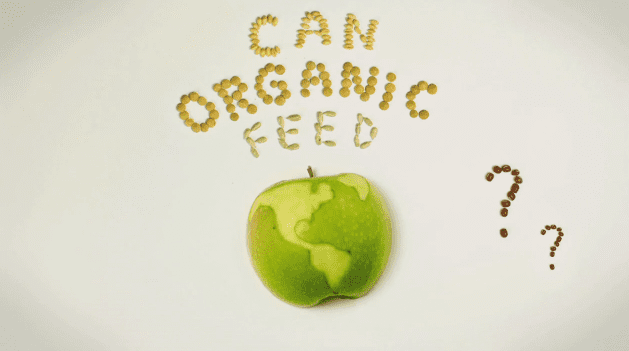Here are a couple of good sound bites to throw back the next time friends, family members, or even strangers tell you we need super-chemicals and GMOs to feed the world:
Chemical farming isn’t “feeding the world” now. Despite more than 70 years of chemical- and petroleum-reliant farming practices, about 1 billion people are malnourished or starving in today’s world.
It takes three calories of energy to create one calorie of edible food with conventional farming. These facts from a report from Johns Hopkins Bloomberg School of Public Health don’t even include the energy used in transportation or processing. Our current system relies on practices that actually diminish the resource base that is needed to sustain it.
Biotech crops falter and fail without expensive herbicides, pesticides, fertilizers, and irrigation. While enormously productive in ideal conditions, biotech crops gobble up incredible amounts of resources to produce that yield.
Organic methods can produce harvests 180 percent larger than chemical farming in communities that struggle to feed themselves. Although global population is on the rise, population in the developed world is actually on the downturn. Most of the growth is in the developing world, where organics have been shown to have the most beneficial effects.
We could double food production in just 10 years using organic practices and other agroecological farming methods, according to a report from the United Nations. Agroecological practices, such as organic farming, attempt to mimic natural processes and rely on the biology of the soil and environment rather than synthetic sprays and other inputs.
Organic farming creates more of the resources on which our food supply relies, while conventional farming destroys them. Conventional farming leeches nutrients from the soil, puts a strain on our water supplies, and relies heavily on fossil fuels to make it work; organic farming builds better, more self-sufficient land, creates cleaner water, recycles nutrients, and leaves us with a cleaner atmosphere.
By Coach Mark Smallwood, Executive Director of the Rodale Institute via Maria Rodale & The Huffington Post
(Illustration via the Intent Blog)

